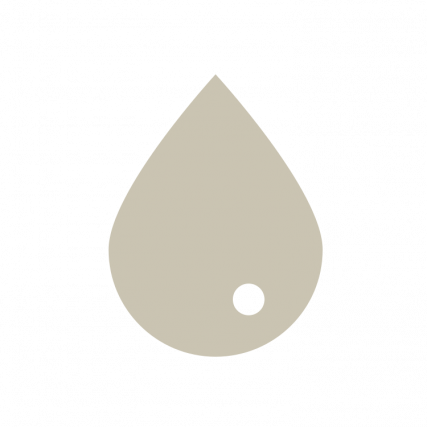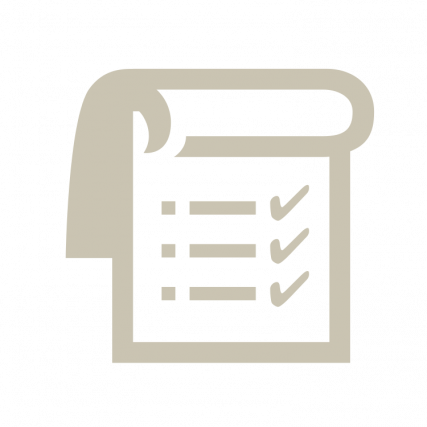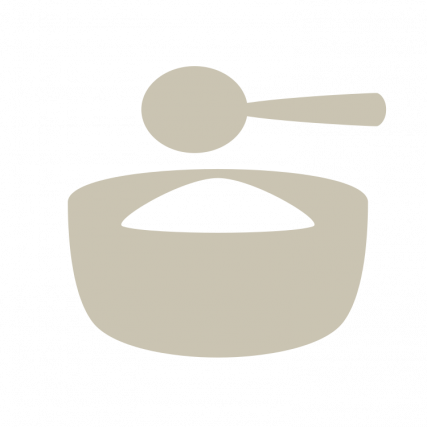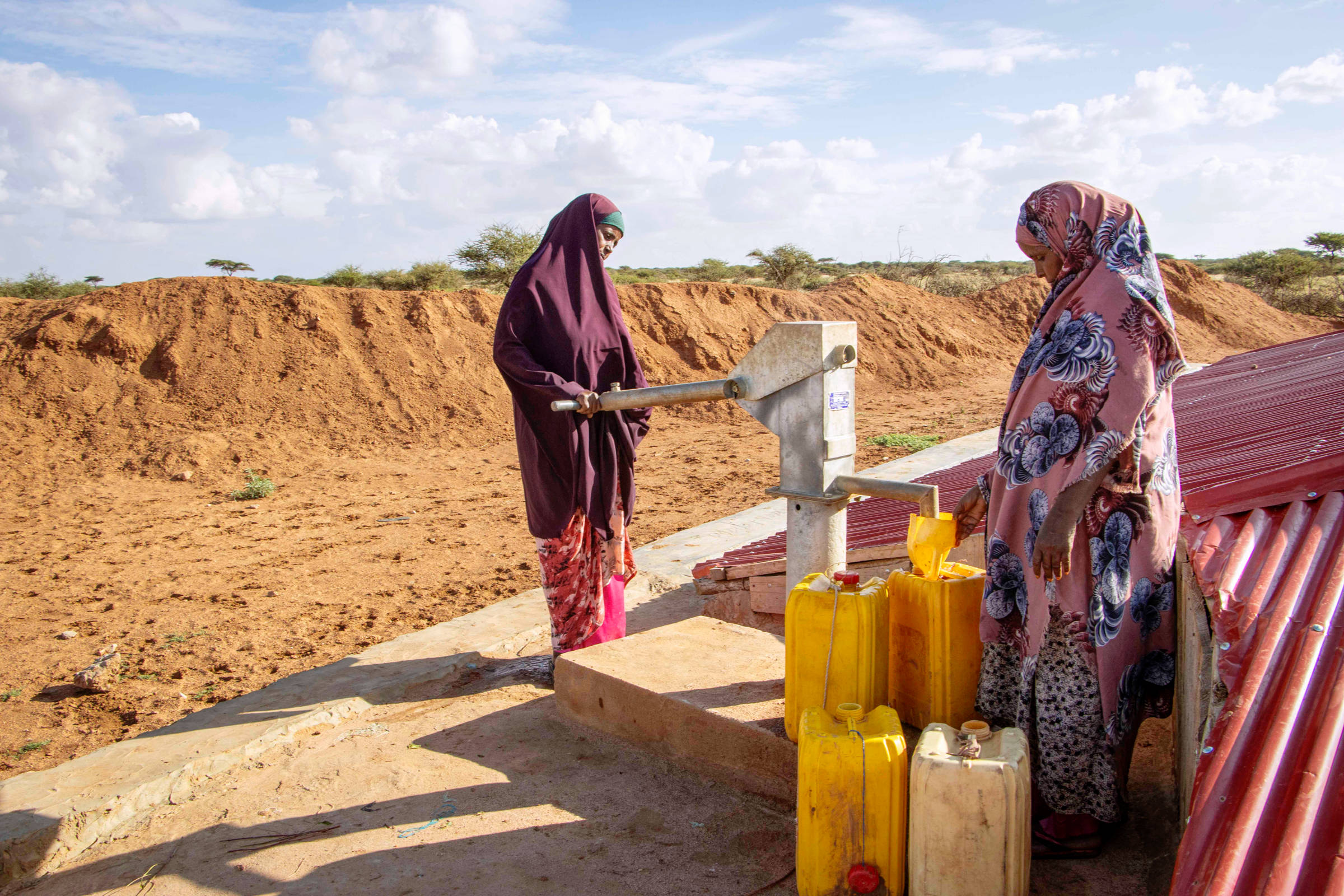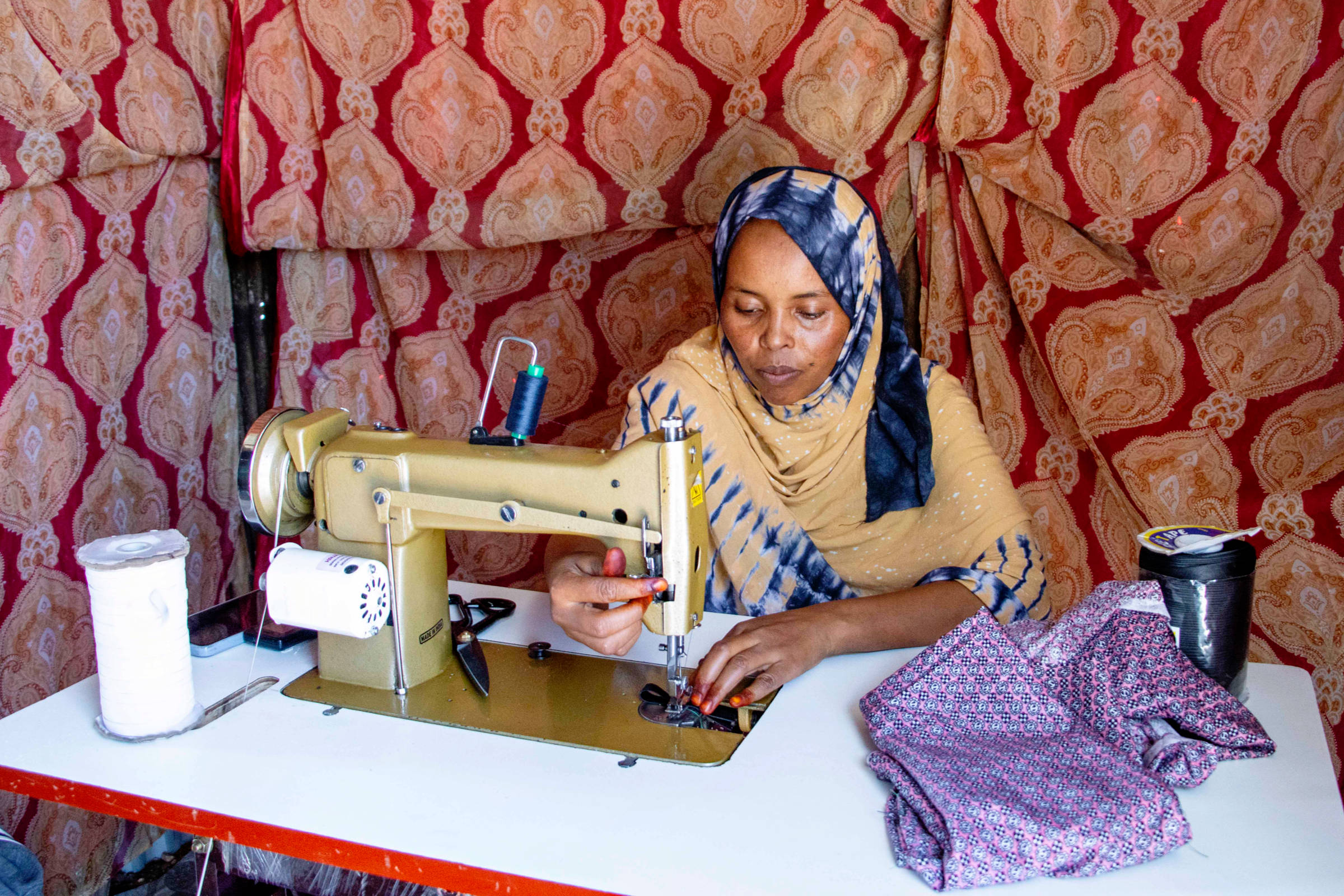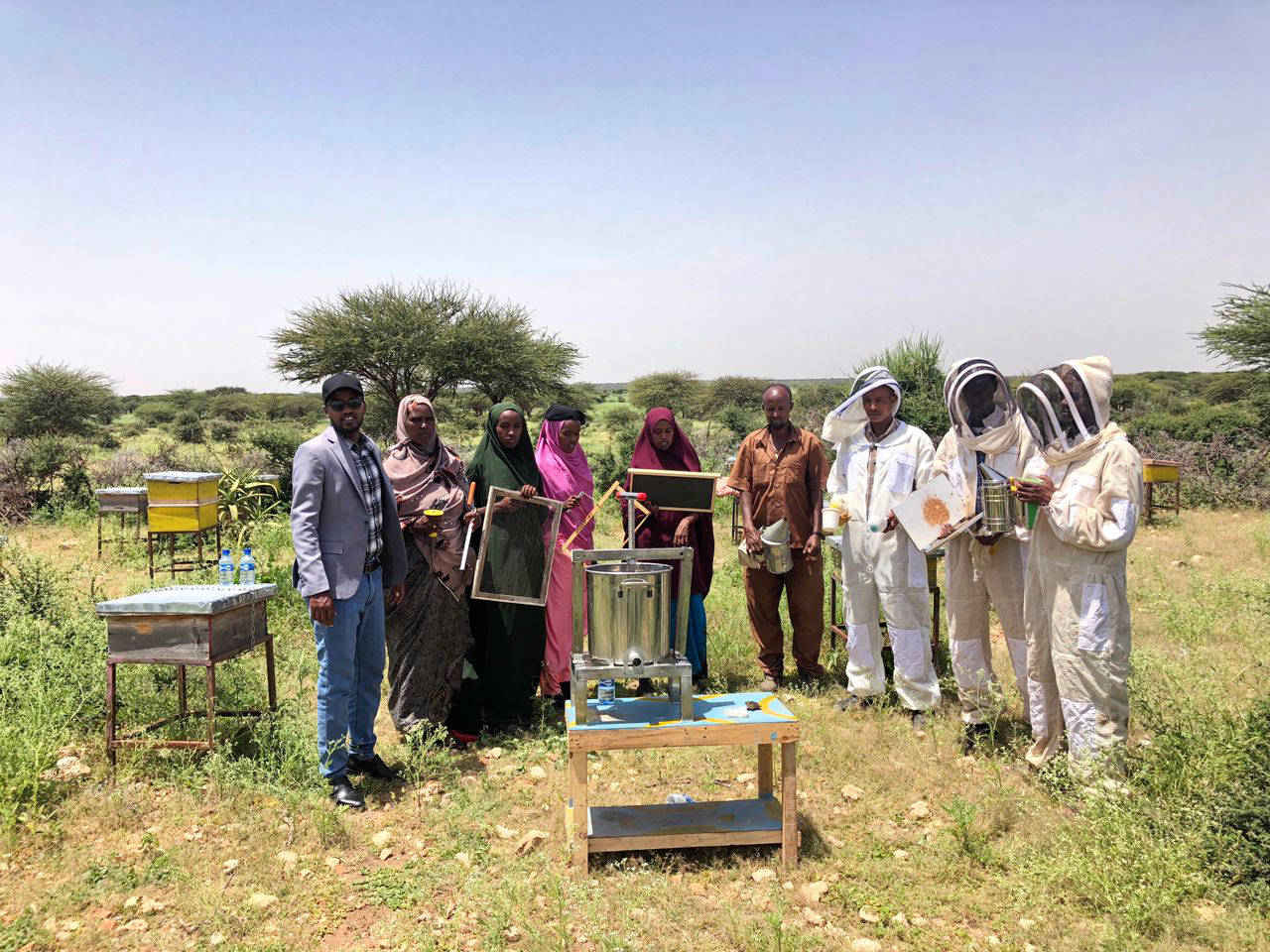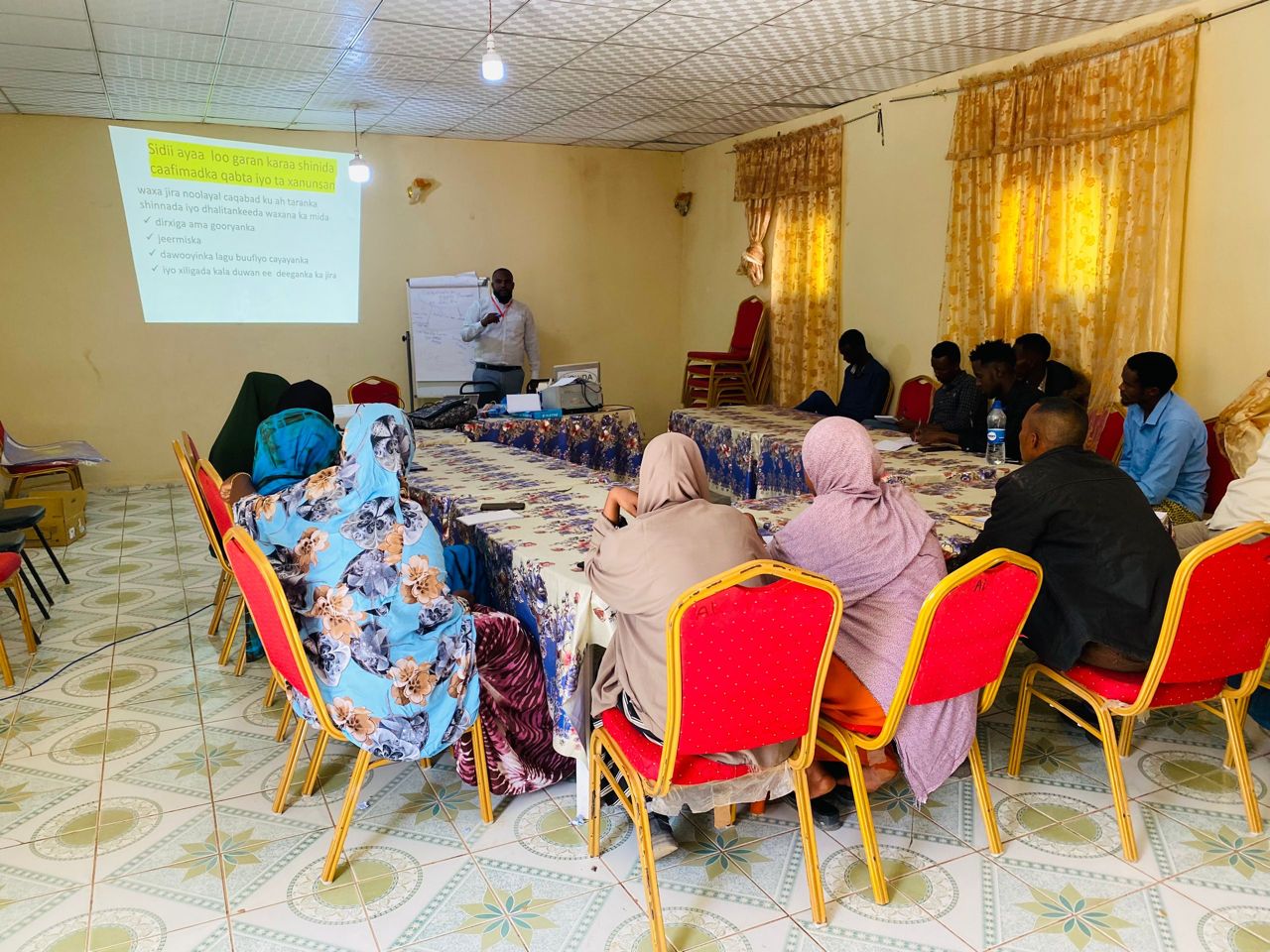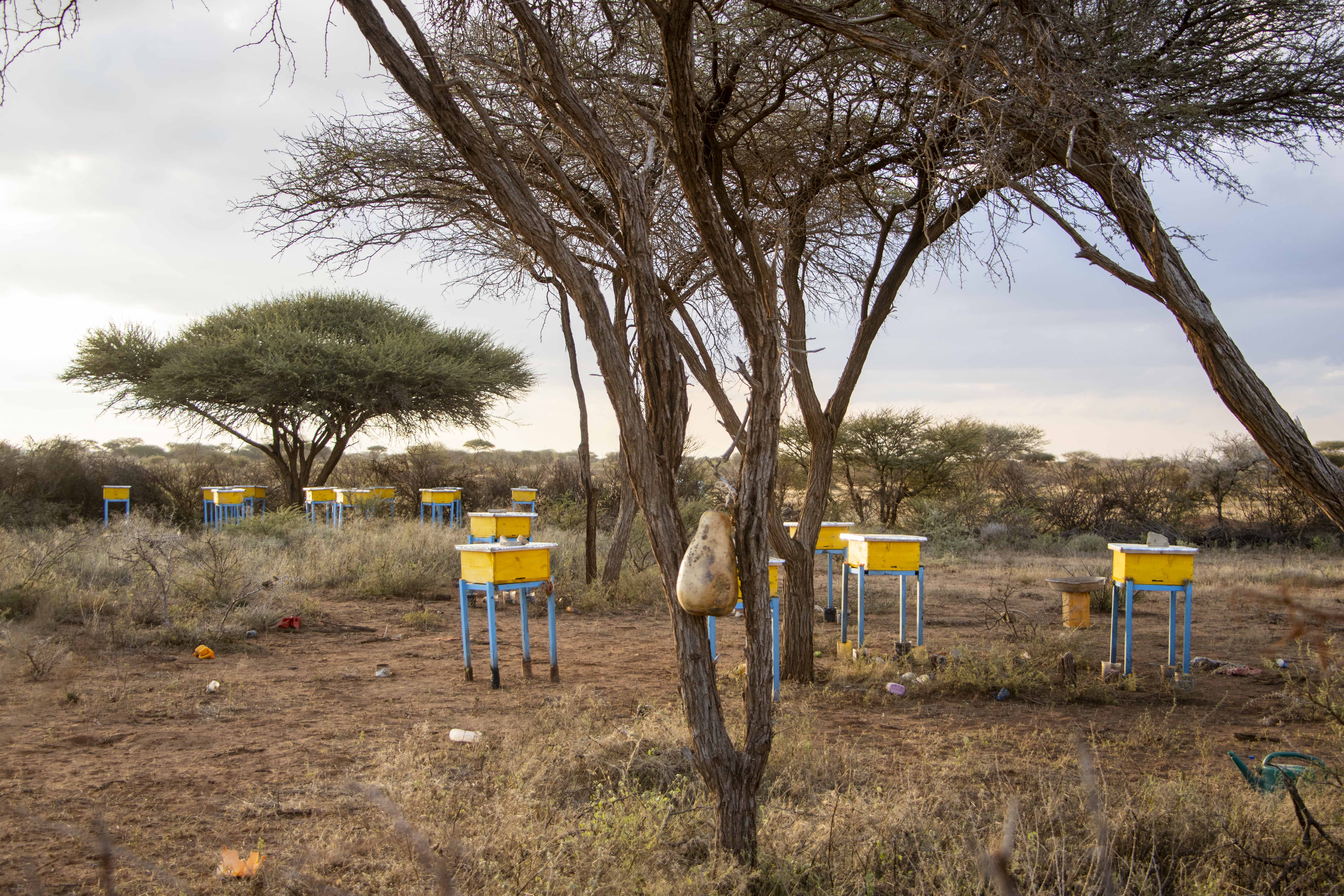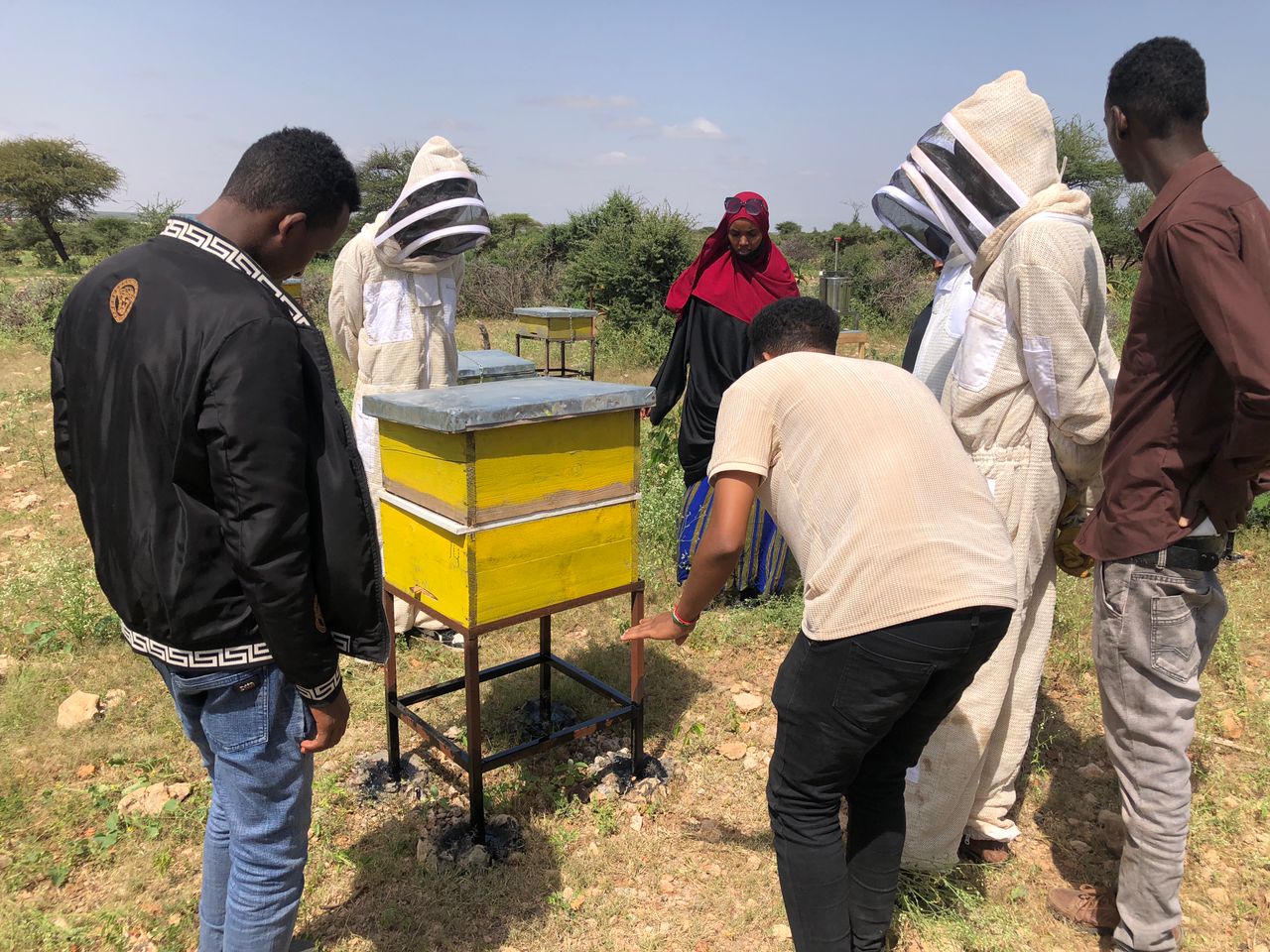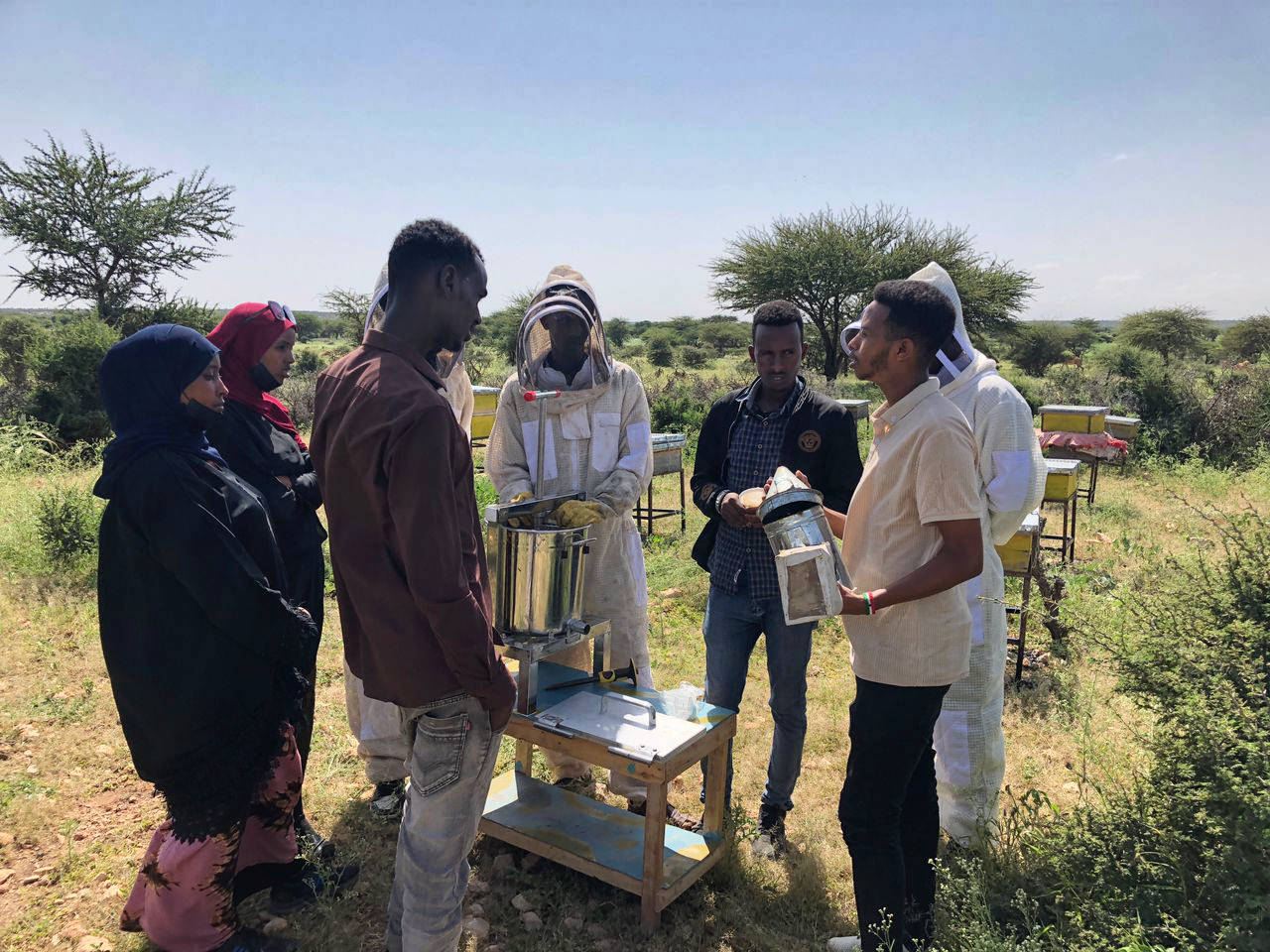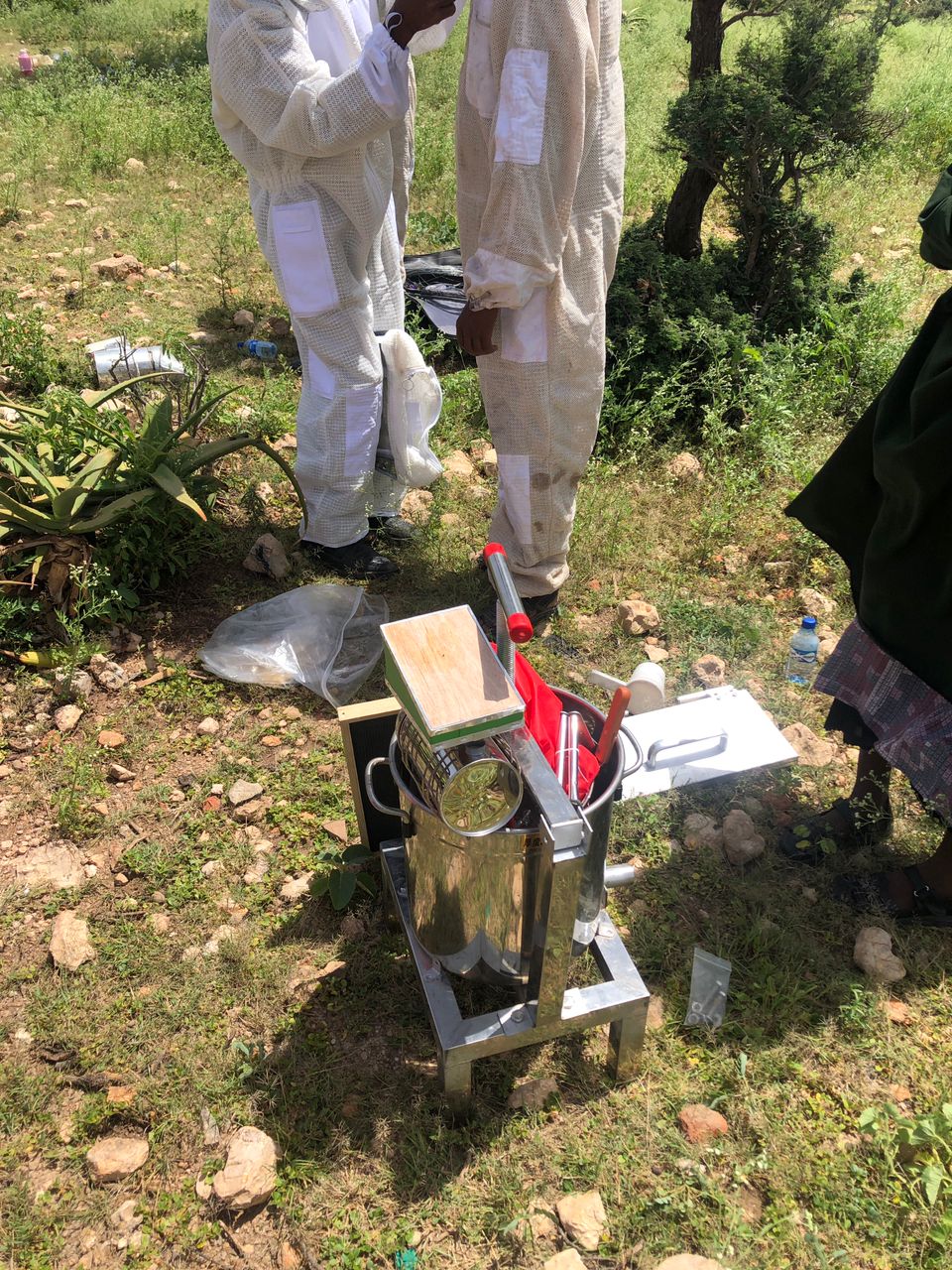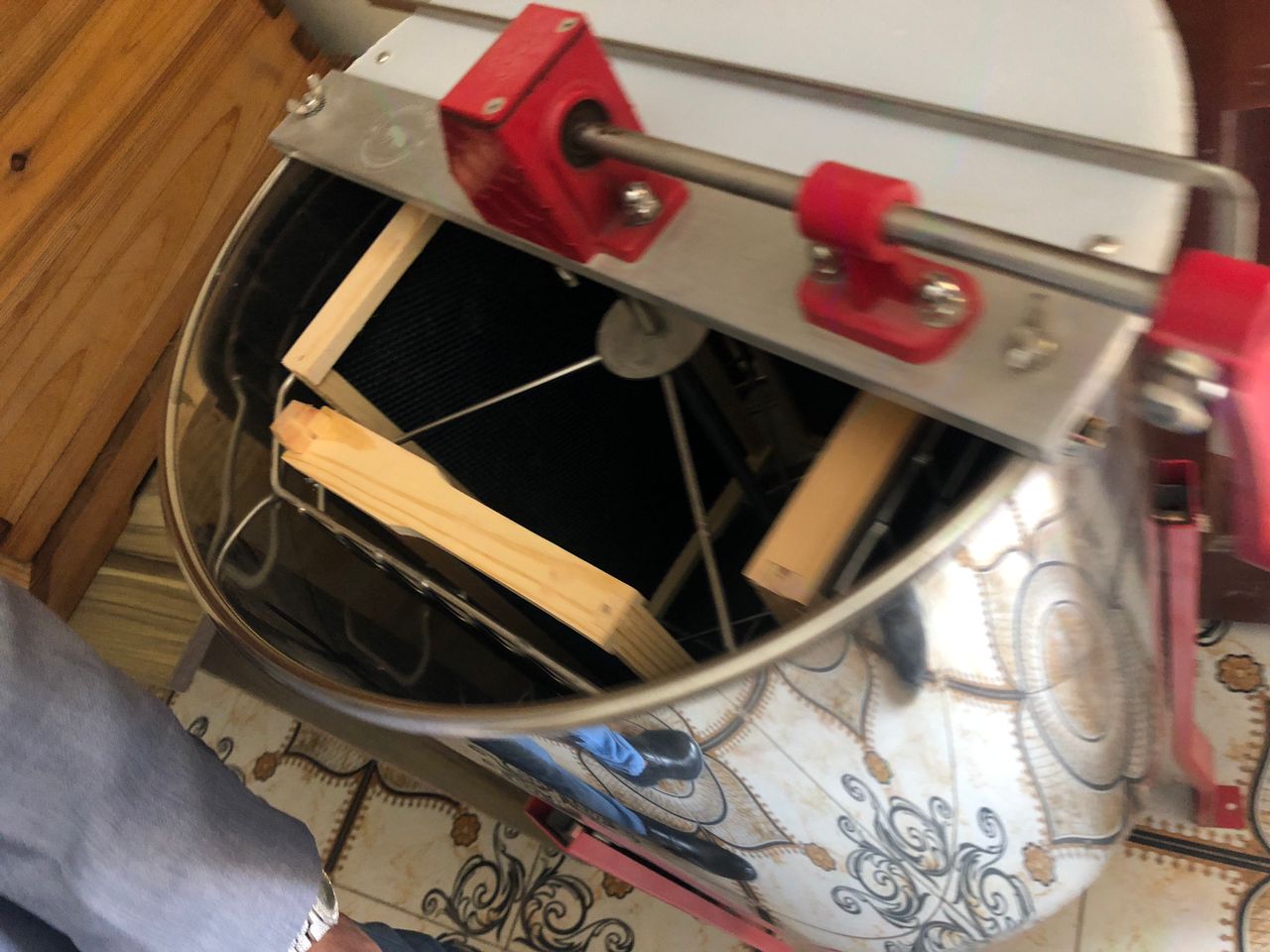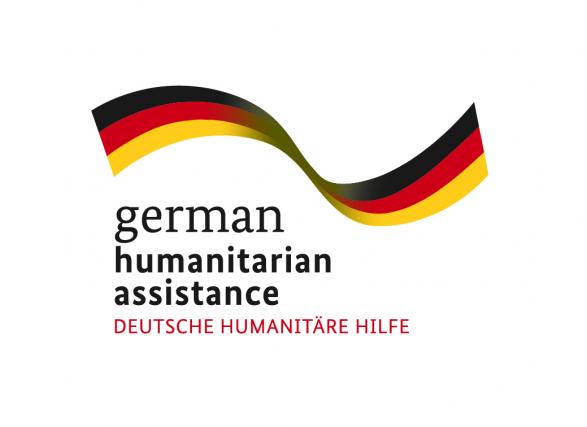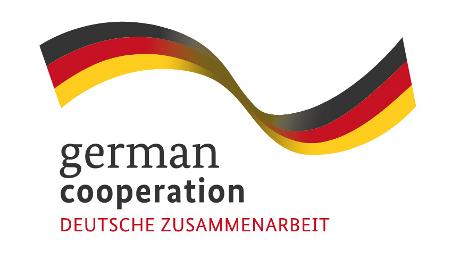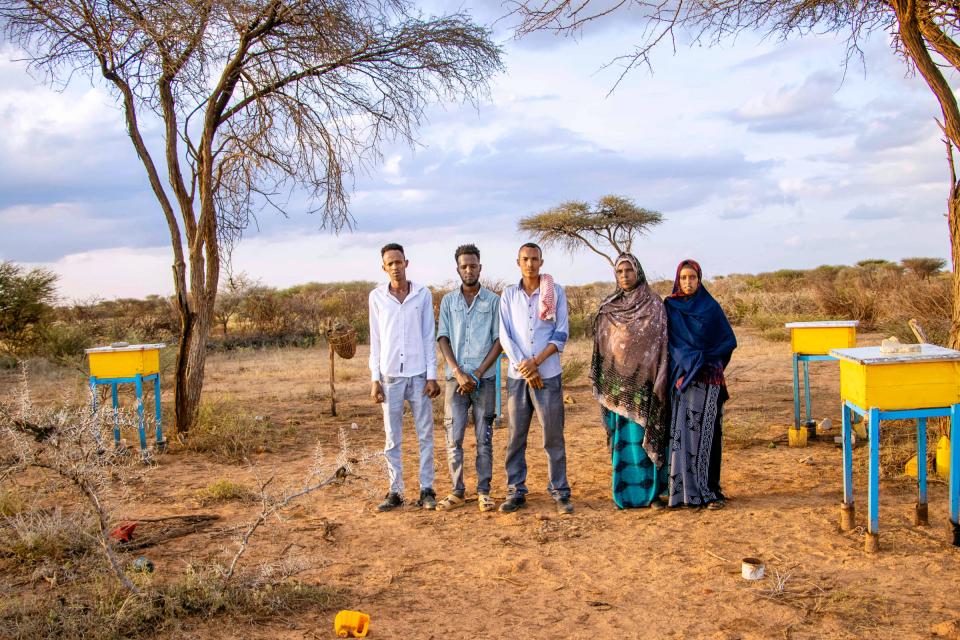
Global program in 14 countries
In order to protect the ecosystem in our project regions, arche nova pursues a green humanitarian aid approach in Somalia. When planning, implementing, and monitoring aid measures, we take a forward-looking, environmentally friendly approach that is adapted to the local habitat. These activities are part of a global program that we are implementing in cooperation with ASB, the German Toilet Organization, and numerous local partners. Together, we are advancing issues such as inclusion, environmental sustainability, disaster preparedness, and international knowledge transfer in a total of 14 countries.
The Baligubadle district in Somaliland is located directly on the border with Ethiopia and is rural in character. Most people here live traditionally from livestock farming. They move from pasture to pasture with goats, camels and sheep. Other sources of income are the sale of firewood and the cultivation of crops. However, livestock farming has been the main source of income for generations. People get milk from the animals, they can slaughter them and eat the meat, and they can sell the milk and dairy products such as ghee, hides and the animals themselves at local markets to generate income. But today this is often no longer enough to survive. Due to the increasingly frequent and persistent droughts, there is a lack of grazing land and water. Almost all families lost animals in the last droughts of 2021 and 2022, some lost their entire herd. This puts people's livelihoods at risk.
Poverty and malnutrition widespread
A needs assessment in our project communities shows that more than 80 percent of those surveyed must be classified as poor or very poor. More than 40 percent of households have no food stocks at all. At the same time, they are confronted with enormously increased prices for grain and other foods and can afford less and less. Added to this are disasters such as swarms of locusts that devour the agricultural land. As a result, malnutrition is widespread in the region and many families are dependent on food assistance from organizations and the government.
Access to water
Water scarcity is one of the most serious challenges in the project region. The availability of water in Baligubadle depends heavily on the time of year. In the main rainy season (April-June), the population can fetch water from seasonal rivers and streams; in the other months, the people and their herds are dependent on natural or constructed water supplies. However, the troughs, ponds and Birkas, as the traditional cisterns are called, are often not sufficient for everyone for the entire dry season.
The lack of water puts families under great pressure. To buy water from private suppliers, households pay around 1,000 shillings for 20 litres, which corresponds to around 10 euro cents. It becomes much more expensive in the dry season, when prices often rise to as much as 4,500 shillings. Quite a few families then have to spend a considerable part of their already scarce income on water. The supply crisis often becomes so acute during the increasingly long periods of drought that people are dependent on water transportation from the government or humanitarian actors.
arche nova is taking action on the ground to expand the water supply directly on site. We are repairing four existing but run down Birkas and building two additional reservoirs with a capacity of around 800 cubic meters. Around 20,000 people will benefit from the additional water supply in the project area.
Improving traditional water reservoirs
Our long-standing Ethiopian partner organization, the Organization for Welfare and Development in Action (OWDA), is responsible for implementing these and other project activities. It has extensive experience with the construction of Birkas and has significantly improved the design of the water reservoirs built into the ground over the last few years. These include a reinforced foundation, additional filter elements (sedimentation basin and sand filter) and water distribution by hand pump. This means that the new Birkas are more stable than the previous ones. They also have a longer service life, lower maintenance costs and good water quality. Local companies are being used on the construction sites. In addition, villagers are involved with cash for work.
OWDA closely involves the local people in the project activities in order to facilitate a smooth transition to self-reliance. The planning meetings and training sessions are aimed at the local population as well as regional and local administrative bodies. Water committees are set up and fee systems are established to ensure the upkeep and maintenance of the facilities.
Promoting disaster prevention
There is a high risk of drought or flooding in our project area. It is therefore important to strengthen the self-help capacities and resilience of the population. In the course of the project, we are building local structures and skills to ensure the functioning of the water facilities and their management throughout the year and to sensitize the population to health and hygiene practices.
Looking ahead, our project also includes emergency measures that will be implemented in the event of an acute drought. A budget is available to enable water deliveries by tanker for a month and to distribute water treatment tablets, which also make water of poorer quality usable.
New ideas for earning a living
Alternative sources of income play an enormously important role for the prospects of local people. After all, people will not be able to rely on livestock and pasture farming alone in the face of the climate crisis. Our project is primarily aimed at women and young people who are less involved in livestock farming. Young people in particular are to be encouraged to be entrepreneurially active in their home region instead of migrating to other regions or large cities.
The participants for this activity are selected in consultation with the village population, local authorities and community elders. Together, they determine who is particularly needy in terms of vulnerability. This includes households that have previously received no or insufficient support from the government or other organizations and are able and willing to provide for themselves in order to become independent of humanitarian aid. As part of the support program, participants are trained in various areas. These include beekeeping, poultry farming and carpentry. The start of the new activity is supported with loans. We are also supporting the establishment of three savings and credit cooperatives, which are helping to turn even more professional and entrepreneurial ideas into reality in the region.
Project Overview
SOMALILAND: Strengthening resilience by improving livelihoods and WASH provision
21,150 people in pastoral and agro-pastoral communities
- Rehabilitation of 4 Birkas, construction of 2 Birkas (each with a water storage volume of around 800 cubic meters)
- Establishment and Training of water committees
- Promotion of good hygiene practices
- Emergency aid for water supply in case of need
- WASH training for authority representatives at district level
- DRR
- Income generation and lending for small business start-ups
- Promotion of 3 savings and credit cooperatives
OWDA
- Federal Foreign Office (AA), Federal Ministry for Economic Cooperation and Development (BMZ), Aktion Deutschland Hilft
- Private donors

